Brigstow presents our 2022 Ideas exchanges
by Brigstow Institute
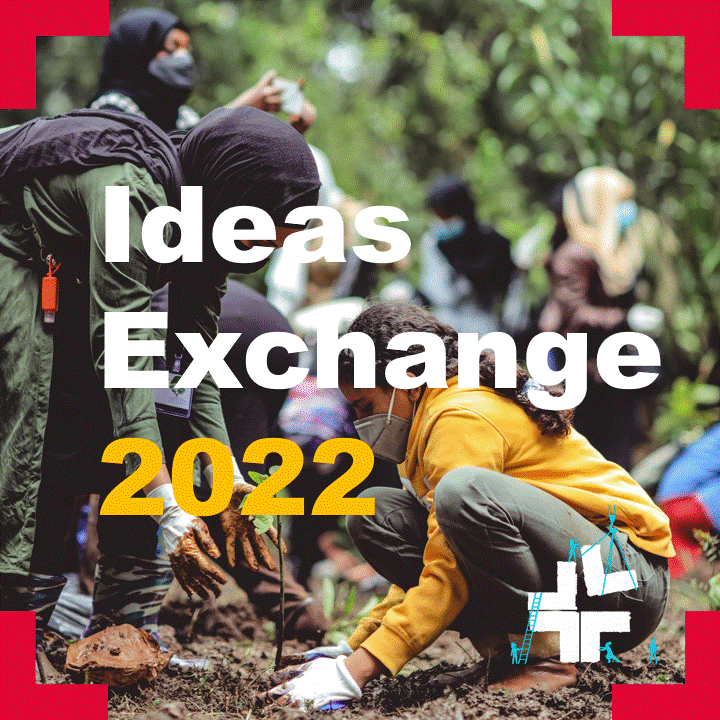
We are delighted to present our 2022 Brigstow funded Ideas Exchanges.
Brigstow Institutes Ideas exchange funding provides researchers the time and resources to connect with others and explore an idea’s potential together. It is designed to support emerging, interdisciplinary networks and partnerships that are co-designed and co-run with external partners.
This cohort of seventeen ideas exchanges range from dismantling ableist barriers in performance to creatively signposting the public to life saving medical equipment, from exploring the temporal imagination to the impacts of hormonal changes in women. We are looking forward to seeing these partnerships strengthen and research ideas developing.
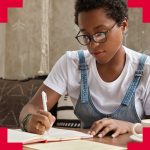 All the Others: Creative responses to gender based violence
All the Others: Creative responses to gender based violence
Contrasting public discourses which tend to misrepresent gender based violence by conveying stereotypes of victimhood, the project will explore how to use creative life writing to construct life story portrayals in collaboration with participants using person centred approaches.
Involving Dr Ana Baeza Ruiz (History of Art), Dr Sarah Jones (History), Ms Jo Higson (English), Dr Nadia Aghtaie (Policy Studies) and Dr Louisa Parker (The Oxford Centre for Life Writing, University of Oxford).
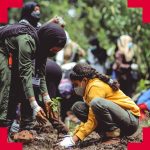 How did/does our garden grow?
How did/does our garden grow?
How can community creativity centring on communal gardening in St Pauls contribute to unmooring “traditional” Environmentalism from its white supremacist origins and on-going entrapping?
Involving Dr Erin Forbes (English), Akulah Agbami and Lulu Veronica Sakala (Black Artists on the Move), Judit Davis (Friends of St Pauls), and Latisha Cesar (Libation Dance).
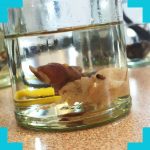 Seeing the Invisible, Hearing the Inaudible: Revealing estuarine mysteries through art and science
Seeing the Invisible, Hearing the Inaudible: Revealing estuarine mysteries through art and science
In what ways can engagement in the nocturnal human-environment entanglements of the River Erme foster curiosity and care for the river by those living within its catchment, and does this reveal new insights about the contested futures of our rivers? Studies of iconic UK rivers abound (Thames, Severn). But what of the much smaller water courses? How do those living in the catchment areas of smaller rivers engage with them after dark?
Involving Prof Martin Genner (Biological Sciences), Laura Denning (Artist), Adam Davison and Nicky Bailey (South Devon Area of Outstanding Natural Beauty (AONB)).
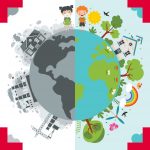 The Climate Crisis: What best hope to tell now?
The Climate Crisis: What best hope to tell now?
An interdisciplinary investigation/discussion into how we ‘tell’ stories about the future, given the unfolding climate catastrophe. Authors, scientists and academics discover how to use storytelling to help people and communities prepare for the climate catastrophe.
Involving Dr Mimi Thebo (English), Prof Rich Pancost (Earth Sciences), Prof Richard Pettigrew (Philosophy), Joanna Nadin (English) , Emma Geen (Author) , Elen Caldecott (University of Lancaster) and Lucy Christopher (Author / Academic).
 The Colour of Dinosaurs: A musical exploration of melanin and vision and how we communicate complex subjects
The Colour of Dinosaurs: A musical exploration of melanin and vision and how we communicate complex subjects
Involving Dr Jakob Vinther (Biological Sciences), Prof Ute Leonards (Psychological Sciences), Prof Nick Scott-Samuel (Psychological Sciences), Lloyd Coleman (Paraorchestra and Friends), Dom Coyote and Liz Counsell (Made of What), Malaika Kegode and Victoria Oruwari (Independent).
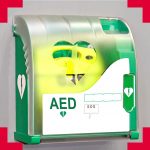 Designing in’ Defibrillators: Combining art and urban planning to increase the visibility of public access defibrillators in civic spaces
Designing in’ Defibrillators: Combining art and urban planning to increase the visibility of public access defibrillators in civic spaces
In an emergency, how would you locate a defibrillator? You have a matter of moments – where is the nearest one to you? This research will creatively consider ways to ‘signpost’ campus users and members of the public to the locations of live-saving defibrillators.
Involving Dr Matthew Booker (Bristol Medical School), Dr Sarah Allsop (Anatomy) , Dr Claire Wienburg and Mr Jason Parr (Safety and Health Services).
 What it is to be there: Exploring grief, place and memory
What it is to be there: Exploring grief, place and memory
Although grief is a universal, human experience, it still remains a taboo subject for many. By focusing on a personal, lived experience of disenfranchised grief, this research aims to open up conversations about death and bereavement, in a manner that destigmatises grief and promotes compassion and understanding.
Involving Dr Lesel Dawson (English), Helen Acklam (BV Studios) and Dr Julian Brigstocke (Cardiff University).
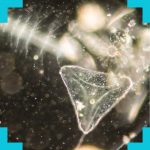 Microbes, Microplastics and Man: Micro-entanglements and the biological complexes of human and more-than-human collisions
Microbes, Microplastics and Man: Micro-entanglements and the biological complexes of human and more-than-human collisions
Can we imagine a time when we take responsibility for the health of our water systems? What might an arts practice look like as a result of this speculative dialogue? The diatom as a micro-space/organism will be at the heart of the project as a thinking-making trigger and to communicate beyond the project.
Involving Dr Joshua Dean (Geographical Sciences), Prof Marian Yallop (Biological Sciences), and Dr Veronica Vickery (Independent Artist).
 Towards Creating Inclusive Performance Spaces: Introducing haptics in performance art to dismantle ableist barriers
Towards Creating Inclusive Performance Spaces: Introducing haptics in performance art to dismantle ableist barriers
How can participatory research can help us to further our understanding of how the sensory environment affects inclusive design and societal wellbeing? This research wants to better understand how new technologies affect people’s multisensory experiences and can allow for more inclusive musical experiences.
Involving Professor Ute Leonards (Psychological Sciences), Greig Dickson (Psychological Sciences), Rowan James (Independent), Dr JF Burn (Mechanical Engineering) and Dr Antonia Tzemanaki (Mechanical Engineering).
 Boys at the Crossroads: Insights and innovations for doing masculinity differently
Boys at the Crossroads: Insights and innovations for doing masculinity differently
Recent social movements have catapulted the issue harmful masculinities into the forefront of public consciousness. Men also experience violence, yet this is overwhelmingly perpetrated by other men. This research seeks to form a network of practitioners, artists and academics to talk about boys, men and masculinity.
Involving Dr Nathan Eisenstadt (Bristol Medical School), Martin White (Office for Health Improvement and Disparities), Rachel Potter (Kooth), Tom Antebi (Off the Record, Bristol) and Alex Greenwood (TIGER).
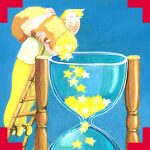 Educating the Temporal Imagination: A proposal for a new ideas conversation
Educating the Temporal Imagination: A proposal for a new ideas conversation
How we think about time – and use time to think with – matters. This ‘temporal imagination’ shapes our understanding of the world, how it might change and influences what we value. What would an educational approach to time look like?
Involving Prof Keri Facer (Education), Solveig Settemsdal (Independent), and Penny Hay (House of Imagination).
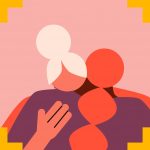 Woven
Woven
How might an engaging artwork help women to connect or understand our bodies and hormonal changes on a deeper level? This research is focussed on the human experience of mental health and hormonal changes for women and how this effects society as a whole.
Involving Prof Maria Fannin (Geographical Sciences), Angie Bual (Trigger) and Bronia Houseman (Independent).
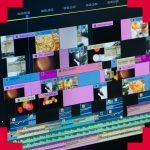 The Bristol-led Digital Filmmaking Research Network: 1st Annual Meeting
The Bristol-led Digital Filmmaking Research Network: 1st Annual Meeting
Filmmaking research underwent significant methodological restrictions during Covid-19 due to travel bans and lockdowns. The Digital Filmmaking Research Network emerged, an online space where global film makers, researchers and participants sought to collaborate on experimental methodologies. This network is looking to explore “What happens next?”.
Involving Dr Miguel Gaggiotti (Film and Television).
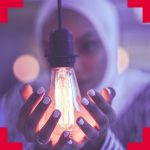 Methods Ideation for Participatory Critical Futures Making in Immersive Shared Spaces
Methods Ideation for Participatory Critical Futures Making in Immersive Shared Spaces
Can shared immersive digital spaces facilitate the co-creation of fairer and more sustainable futures with communities at the margins? This research will engage with communities to co-produce a series of use-case scenarios in which an immersive environment could be used to support participatory critical futures making.
Involving Dr Lyndsay Grant (Education), Dr Neil Carhart (Civil Engineering) and Jon Somerscales (Independent).
 Laundry Justice
Laundry Justice
What is the effect of contemporary laundry methods on our rivers and coastlines? What places and spaces within the city facilitate alternative forms of garment care? This project seeks to explore ways to live better with our clothing.
Involving Lizzie Harrison (Centre for Innovation), Lara Luna Bartley (University of the West of England), Naomi Millner (Geographical studies) and Josh (Bristol Vehicles for Change (CIC)).
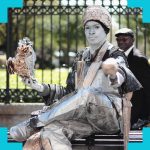 Empowering Audiences through Street Performance
Empowering Audiences through Street Performance
How can we better understand audiences experiences of temporary monuments? What is the best way to collect and use audience feedback during a live performance? This research explores these questions through the performance of living statues.
Involving Dr Sumita Mukherjee (History), Louise Jordan (Independent Artist), Dr Tanja Schult (University of Stockholm) and Prof Tim Cole (History).
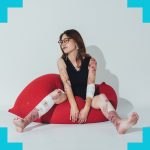 Improving the Quality of Life for People Living with EB: Developing an interdisciplinary network to evaluate requirements and engineering solutions for a second skin technology.
Improving the Quality of Life for People Living with EB: Developing an interdisciplinary network to evaluate requirements and engineering solutions for a second skin technology.
Can the discipline of engineering find ways to improve the quality of life for those affected by Epidermolysis Bullosa? This network of engineers, ethics researchers and those with experience and expertise in Epidermolysis Bullosa looks for solutions to make life better.
Involving Dr Mohammad Naghavi Zadeh (Engineering Mathematics), Dr Mari-Rose Kennedy (Bristol Medical School), Prof Jonathan Rossiter (Engineering Mathematics), Prof Fabrizio Scarpa (Aerospace Engineering) and Sharmila Nikapota and Elizabeth Clark (Cure EB).

